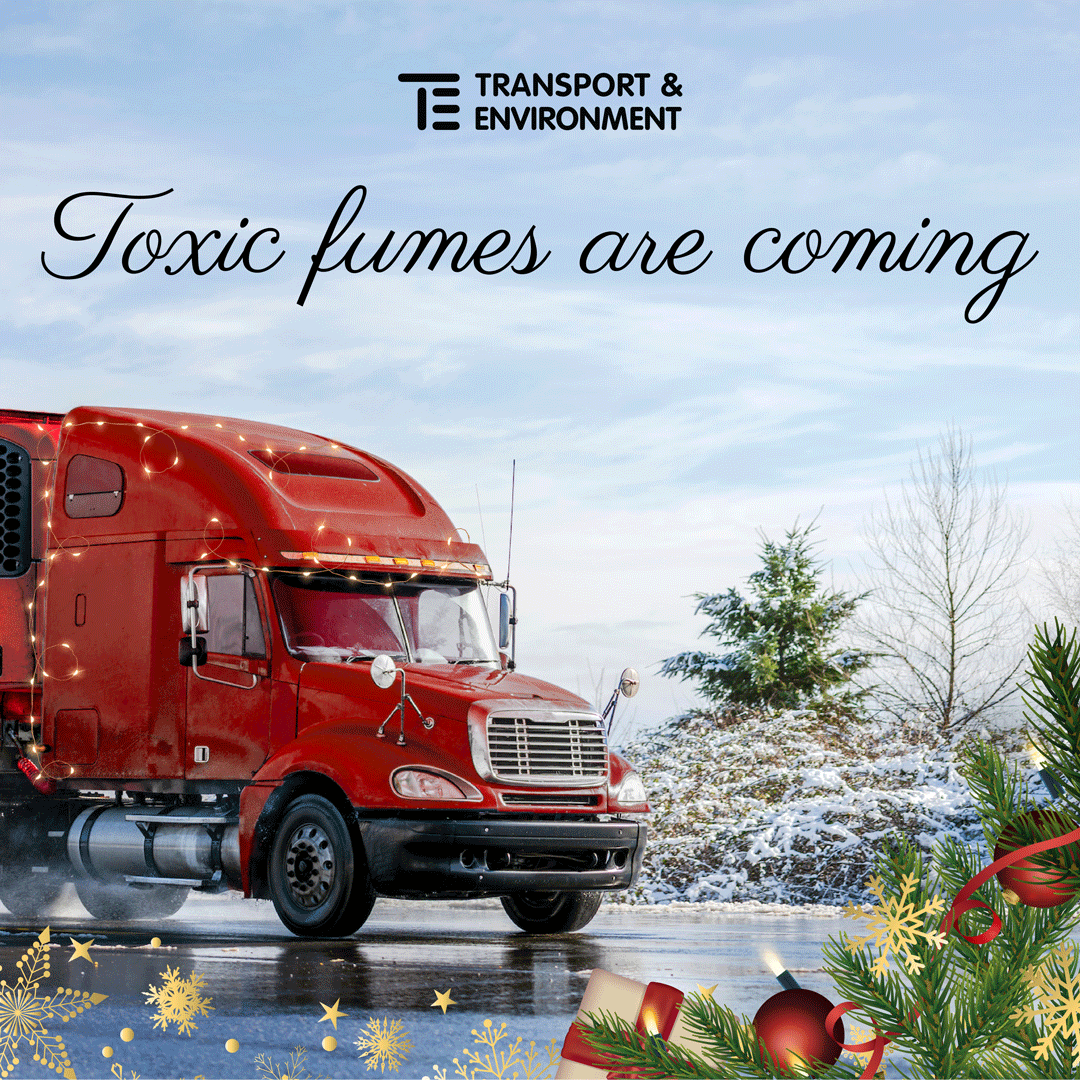Toxic air pollution from trucks carrying Christmas presents will more than double over the month of December as hauliers respond to the holiday rush. Nitrogen oxide (NOx) emissions from heavy-duty vehicles transporting gifts around Europe will rise 133% this month compared to a normal month, new analysis by green group Transport & Environment (T&E) shows. NOx is the pollutant that was at the heart of the Dieselgate scandal and is responsible for 49,000 premature deaths in Europe annually.

Carbon emissions from trucks carrying gifts will increase by the same proportion (133%) in December – equivalent to an extra 9,500 return flights from Paris to New York. T&E, which analysed the additional CO2 and NOx emissions of trucks transporting consumer goods (excluding food) in the month of December, said the solution is already available in zero-emissions trucks. But EU regulators need to mandate truckmakers to start mass producing electric rigs.
Sofie Defour, freight director at T&E, said: “Trucking today is a dirty business and that business increases massively at Christmas. But it doesn’t have to be that way. Zero-emissions trucks are available now and would quickly become the cheaper option if the EU would require truckmakers to start mass producing them. That’s a win-win for cleaner air and the climate.”
Trucks are responsible for over half of the total transport carbon emissions on some of the busiest routes for Christmas presents despite covering less than 10% of the journey, the report also finds. Three-fifths (60%) of the CO2 from transporting a gift from China to Madrid is from a truck, while half the pollution (51%) of getting a present from China to Warsaw is emitted by a lorry.
Zero-emissions trucks could dramatically reduce the climate cost of road freight, the report finds. Setting a target now for all truck manufacturers to sell only zero-emissions vehicles from 2035 would slash CO2 pollution from heavy-goods vehicles – by 11% already in 2030, and by almost half (48%) by 2035 (relative to 2022).
Earlier this month, a business coalition, including Siemens, Unilever, Maersk and PepsiCo, told the EU that a 2035 zero-emissions target for new freight trucks would provide investment certainty for vehicle manufacturers to increase their electric and green hydrogen offerings.
Sofie Defour said: “Giving Christmas gifts should be a joyous occasion that doesn’t cost us the earth. Trucks play an outsized role in the pollution problem and that’s worsening as freight traffic grows. Switching to zero-emissions trucks can give people a little peace of mind that their presents are delivered by green vehicles.”
T&E is calling for a 2035 deadline for vehicle-makers to sell only zero emissions trucks in Europe – to speed up the roll-out of electric and hydrogen trucks. The EU Commission is set to propose draft CO2 targets for truckmakers in January.


